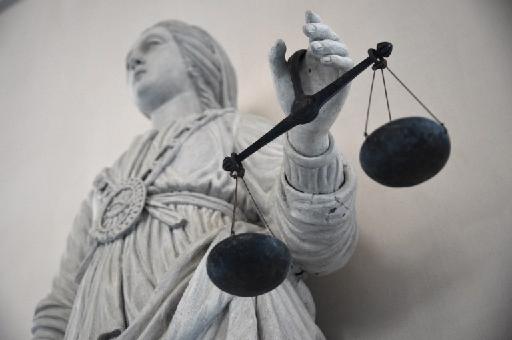The appeal against a ruling by the Brussels Civil Court ordering the State of Belgium to end the "apparent illegality" of measures taken to curb the spread of coronavirus begins on Monday.
The initial hearing is expected to focus on setting a timetable for the presentation of conclusions and the dates for submissions.
Like the original suit, the appeal will be heard in summary proceedings. If confirmed or modified by the appeal court, the injunctions of the first judge will continue to be provisional, pending any substantial deliberations.
On the 31st of March, the Brussels Civil Court, in summary proceedings, decided, "to set aside the application of the ministerial decree of 28 October 2020 and subsequent decrees with regard to the measures they enact within the framework of the Coronavirus pandemic.”
The court’s decision came in response to a petition by the French and Dutch-language human rights leagues, the Ligue des Droits Humains and the Liga voor mensenrechten.
It instructed the State of Belgium to “take all measures it shall deem appropriate to put an end to the situation of apparent illegality stemming from the measures restricting fundamental rights and freedoms contained in the decrees."
The Court ordered the State to do this “within a maximum period of thirty calendar days from the issuing of the present ruling, under penalty of a fine or 5,000 euros per day delayed, up to a maximum of 200,000 euros.”
These two sections of the ruling created some confusion and, for Jean-François van Drooghenbroeck, professor of judicial law at the Catholic University of Louvain (UC Louvain), each needs to be read in combination with the other.
"What the judge in summary proceedings meant is that 30 days after his ruling, the Government must have taken the appropriate measures to repair the denounced illegality,” he explained. “It is only failing such a reparation within the deadline given to the Government, and only after that period has passed, that the contested ministerial decrees would lose their effect and be set aside.”
“The ruling has to be read as a whole; the judge could not have wanted to create a thirty-day national juridical vacuum,” Professor van Drooghenbroeck told Belga news agency.
"For the moment, during this thirty-day period, we – the parties to the ruling and all Belgians whose collective interest the leagues represented – therefore need to conform to the suspended legality of these ministerial decrees,” he added, “and when the time comes, we shall all enjoy either the new reparatory legislation or the repeal of these decrees if the legislator does not take the appropriate measures.”
"As for the scope of the ruling, it seems to me that it applies to all Belgians,” he noted. “Why? For two cumulative reasons. First, because the two leagues are acting in the collective interest, which is explained at length in the ruling, and the entire population enjoys the human rights whose protection the two leagues are defending.
"Secondly, because we’re speaking here of ministerial decrees which, by definition, apply to everyone.
“On the other hand, as regards the legal costs and possible fines and to whom they should be paid out, they should be given to the plaintiffs,” the legal expert explained. “A clear distinction has to be made here between the benefit of the decision and the procedural obligations of the parties to the ruling.”
The Brussels Times

